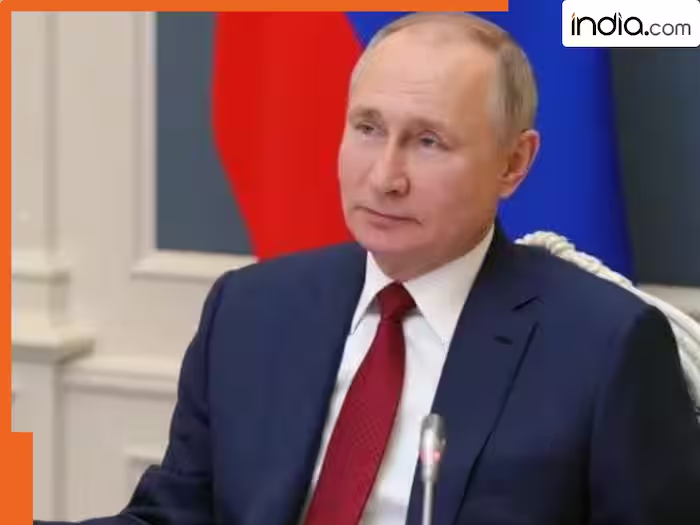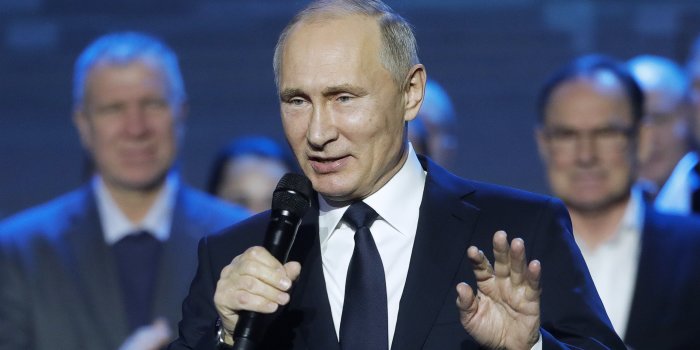A Discovery That Changed Everything
In a world where energy resources determine economic power, global influence, and even political stability, Russia has just pulled off a remarkable feat. A colossal discovery has thrust the nation into the spotlight, promising to redefine the balance of energy power worldwide. This revelation is nothing short of a jackpot—an energy find so monumental that it could shake the foundations of global oil and gas markets, leaving key Middle Eastern players like Saudi Arabia, the UAE, and Qatar on high alert.
What makes this discovery so significant is not just its sheer scale, but the timing. With the world transitioning toward a diversified energy future while still heavily dependent on oil and gas, the implications are far-reaching. This is more than a win for Russia; it’s a challenge to decades of dominance enjoyed by Gulf nations.
Why This Discovery is Making Headlines Everywhere
When news broke of Russia’s recent energy jackpot, analysts and policymakers across continents began recalculating their strategies. The discovery reportedly involves a massive reserve of natural gas and oil—estimated to rival or even surpass some of the richest fields in the Middle East.

Energy markets are sensitive ecosystems. A new major supply source can disrupt existing equations overnight, affecting prices, investment decisions, and even geopolitical alliances. For decades, Middle Eastern oil giants like Saudi Arabia, the UAE, and Qatar have enjoyed a strong grip on global supply. This new Russian find introduces a formidable competitor into that elite circle.
The timing couldn’t be more critical. The global energy sector is navigating uncertain waters, balancing the demand for oil and gas with accelerating investments in renewable energy. For Russia, this discovery comes as a lifeline, bolstering its economy at a time when sanctions and market restrictions have posed challenges. For Middle Eastern nations, however, it signals a potential erosion of their long-held influence.

What Makes This a Jackpot for Russia?
Calling this discovery a jackpot isn’t an exaggeration. Russia already ranks among the top producers of oil and gas globally, but this latest reserve could dramatically increase its output capacity. Experts suggest that the reserves contain billions of barrels of oil and trillions of cubic feet of natural gas.
The economic implications are massive. This means:
- Revenue Surge: Russia can substantially increase its energy exports, strengthening its economy and currency.
- Geopolitical Leverage: With enhanced energy capacity, Russia can negotiate from a position of power in global markets.
- Investment Magnet: This find could attract foreign investments in energy infrastructure, pipelines, and LNG projects.
For Russia, this isn’t just about energy; it’s about strategic positioning in an increasingly multipolar world. Energy is power, and this jackpot solidifies Moscow’s grip on one of the most valuable resources of our time.
The Shockwaves Across the Middle East
While the news is exhilarating for Russia, it’s sending shockwaves through oil-rich nations of the Middle East. Countries like Saudi Arabia, Dubai (UAE), and Qatar have built their economic foundations on energy exports. Their state budgets, sovereign wealth funds, and ambitious development plans often rely heavily on stable oil and gas revenues.
So, why the concern?
- Price Pressure: An increase in global supply typically pushes prices down, reducing profit margins for Middle Eastern producers.
- Market Share Battle: With Russia entering the scene more aggressively, competition in Asian and European markets will intensify.
- Long-Term Strategy Disruption: Gulf nations have been working toward economic diversification, but energy remains their strongest pillar. Any threat to this pillar disrupts national plans.
The Middle East has long enjoyed being the energy capital of the world. A new heavyweight competitor forces them to rethink strategies faster than ever.

Could This Trigger a Price War?
Energy markets are notoriously competitive, and price wars have happened before. The most recent was between Russia and Saudi Arabia in 2020, which sent global oil prices tumbling. Could history repeat itself?
If Russia leverages its new discovery aggressively, offering oil and gas at competitive prices to secure long-term contracts, Gulf nations may be forced to follow suit. This could ignite another round of price wars, creating volatility in global markets. While lower prices may sound like good news for consumers, they could destabilize economies heavily reliant on energy revenues.
Global Impact: More Than Just an Energy Story
This discovery isn’t only an economic or industry headline—it’s a geopolitical earthquake. Energy resources have historically been linked to global power. Nations that control energy supply often shape global politics. With this jackpot, Russia strengthens its influence not just regionally but globally.
Here’s how this could play out:
- Europe’s Energy Equation: Europe, seeking alternatives to Middle Eastern and African oil and gas, may deepen ties with Russia.
- Asia-Pacific Demand: China and India, two of the world’s largest energy consumers, will likely find Russia’s offering attractive.
- Shift in Alliances: Countries looking to secure energy security may tilt closer to Moscow, impacting global diplomatic alignments.
For global markets, this means a reshuffle in the deck of energy dependence, creating both opportunities and uncertainties.
Can the Middle East Counter This Threat?
Middle Eastern nations are far from passive players. They have resources, technology, and financial might to respond strategically. Here’s what we can expect:
- Aggressive Diversification: Accelerating investment in sectors like tourism, tech, and renewable energy.
- Strengthening OPEC Alliances: Using collective bargaining to stabilize oil prices and control output.
- Exploring LNG Growth: Qatar and the UAE, already strong in LNG, may intensify their dominance in this niche.
The Gulf states know that the energy world is evolving. This Russian discovery is a wake-up call, reminding them that the race isn’t over—it’s just entering a new phase.
What Does This Mean for Consumers Worldwide?
For ordinary consumers, the implications could be mixed:
- Potential Price Drops: More supply could mean lower fuel and energy costs in the short term.
- Economic Ripples: Energy-driven economies may face volatility, influencing everything from job markets to global trade.
- Green Energy Push: This discovery might paradoxically accelerate renewable energy adoption, as nations seek insulation from oil-driven geopolitics.
The Bigger Picture: A World at an Energy Crossroads
The energy industry is at a defining moment. While the future points toward renewable energy, oil and gas still dominate global energy consumption. Russia’s jackpot discovery reinforces this reality. It also raises critical questions:
- How long will fossil fuels remain dominant?
- Will this discovery slow down green energy investments?
- Could energy-rich nations shift from competition to collaboration?
One thing is clear: the world cannot ignore this development. It’s not just an energy story—it’s an economic, political, and strategic narrative that will shape global headlines for years to come.
Final Thoughts
Russia’s massive energy discovery is more than a jackpot—it’s a game-changer. It promises prosperity for Moscow but sends a strong warning to the Gulf states that the era of easy dominance is fading. For the rest of the world, it’s a reminder of how interconnected our economies and futures are.
The question now isn’t whether this discovery will impact global energy markets—it’s how deep and how fast those changes will unfold. And as nations position themselves for this new reality, one thing is certain: the global energy chessboard just got a lot more interesting.
Do follow UAE Stories on Instagram













